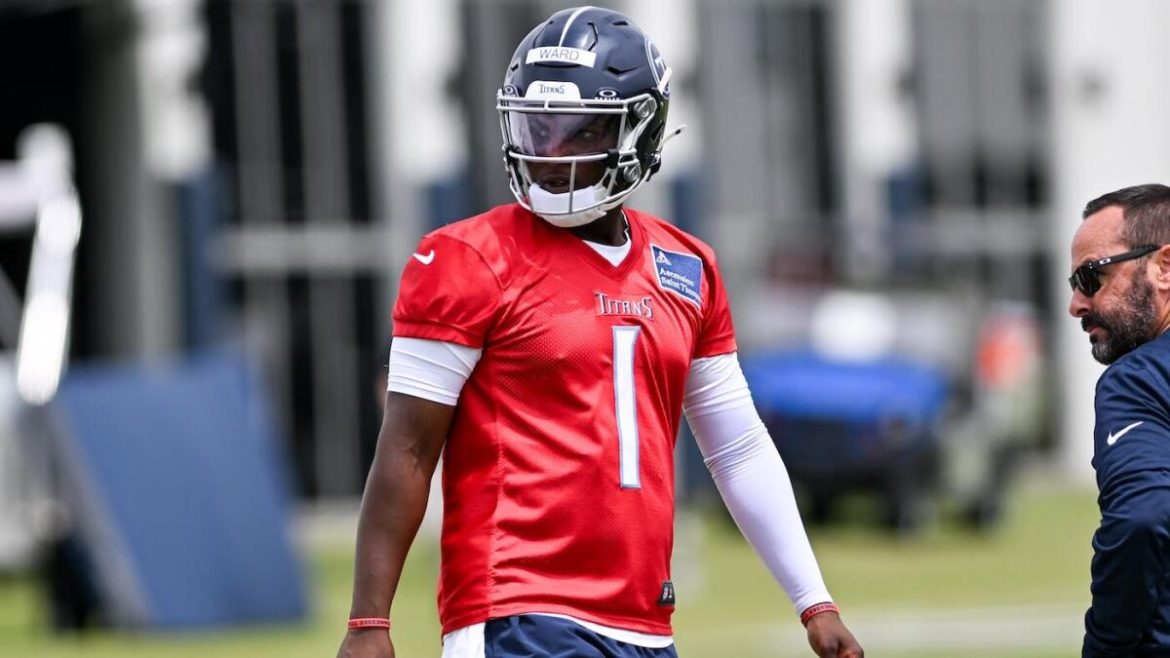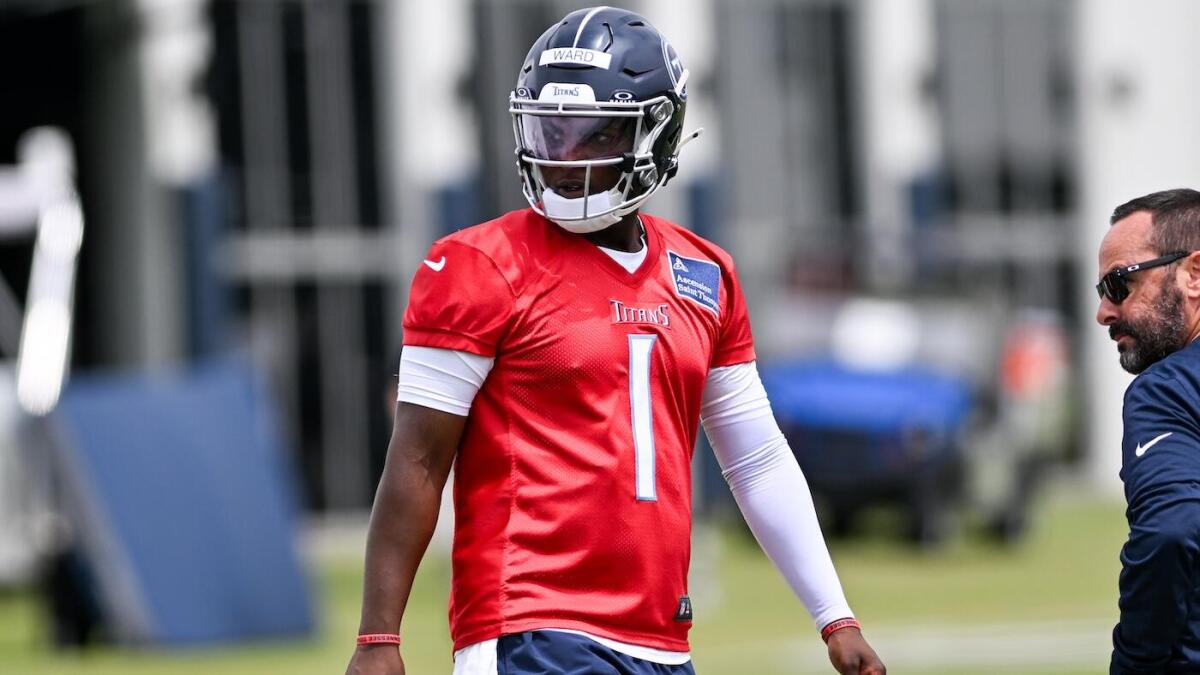Navigating the Titans’ Quarterback Scenario: Cam Ward and Will Levis Splitting Reps
The Tennessee Titans find themselves in an intriguing quarterback situation this offseason, with rookie Cam Ward and second-year QB Will Levis currently sharing practice reps evenly. This dynamic approach, as elucidated by head coach Brian Callahan, offers a fascinating glimpse into the team’s evolving strategy as they prepare for the next NFL season.
—
Early Offseason Strategy: Equal Reps Without Competition
Throughout the early phases of the Titans’ offseason activities, including concentration camps and initial practices, Ward and Levis have been splitting quarterback reps roughly 50/50. According to Coach Callahan’s recent remarks, this equal distribution is intentional and does not represent an active competition at this stage. Instead, it serves several purposes:
– Developmental Focus: By allotting equal repetitions, the coaching staff can assess both players’ skills, decision-making, and adaptability in practice without the pressure of an immediate starting role competition.
– System Familiarization: Both quarterbacks are adapting to the Titans’ playbook and offensive scheme, and an even split enables comparable exposure to first-team strategies.
– Informed Decision-Making: The coaching staff aims to gather data on how each QB responds during different drills, especially when transitioning to more complex team activities.
This approach contrasts with a traditional quarterback battle early in the offseason and reflects a patient, evaluative stance from the Titans.
—
The Players: Ward’s Draft Capital and Levis’ Experience
The two quarterbacks bring different values and backgrounds to the mix. Cam Ward, the Titans’ first overall draft pick, carries the weight of expectations that come with such a prestigious selection. His pedigree suggests the team views him as a potential franchise leader moving forward. Meanwhile, Will Levis, selected 33rd overall in the previous draft, enters the offseason having already experienced starting duties.
Coach Callahan has highlighted that while Ward’s draft status implies a higher ceiling and longer-term investment, the present focus is on immediate preparation rather than starting status determination. Levis’ prior experience offers valuable insights and a baseline for comparison as both quarterbacks compete through practice reps.
—
Looking Ahead: Transitioning Into OTAs and Team Work
The current equal split is expected to evolve as the Titans advance towards Organized Team Activities (OTAs) and team scrimmages. Coach Callahan indicates that with the approach of seven-on-seven drills and full team sessions, the distribution of reps will likely shift.
– Scaling Up Competition: As the offseason progresses, the coaching staff will likely start implementing performance-based rep allocations, enabling a more natural competition to emerge.
– Functional Evaluation: Team drills provide context on leadership, game tempo adjustment, and chemistry with offensive players, all critical factors for naming a starter.
– Flexibility and Adjustment: Splitting reps initially allows the coaches to remain flexible, adapting to player development, injury status, and other variables that become clearer with time.
This phased methodology suggests a deliberate approach designed to maximize both development and competitive fairness.
—
Coaching Philosophy and Team Implications
Coach Brian Callahan’s non-committal stance about Ward’s immediate starting role underlines a broader organizational philosophy emphasizing process over premature decisions. This measured approach benefits the team in several ways:
– Avoiding Pressure: Removing the immediate label of “starter” allows Ward to develop without the heightened stakes of camp battles that could be detrimental if performed too early.
– Motivating Both Players: Both Ward and Levis remain engaged and motivated to perform at their best, as the eventual starting role remains an open question.
– Versatility Leverage: Flexibility in quarterback deployment could lead to creative game plans or in-game adjustments during the season, depending on how both players perform.
This method is consistent with best practices in player development and roster management in the NFL.
—
Conclusion: A Balanced Path Forward
The Tennessee Titans’ current approach to splitting quarterback reps evenly between Cam Ward and Will Levis reflects a thoughtful and strategic mindset. Maintaining equality during early offseason phases facilitates comprehensive evaluation and development while setting the stage for a future competitive environment as the team moves toward OTAs and preseason.
Ward’s status as the number one overall pick introduces significant expectations, but the coaching staff’s deliberate, paced integration of both QBs ensures that decisions are data-driven and situationally appropriate. This balanced path holds promise for the Titans as they cultivate their quarterback future with patience and flexibility.





